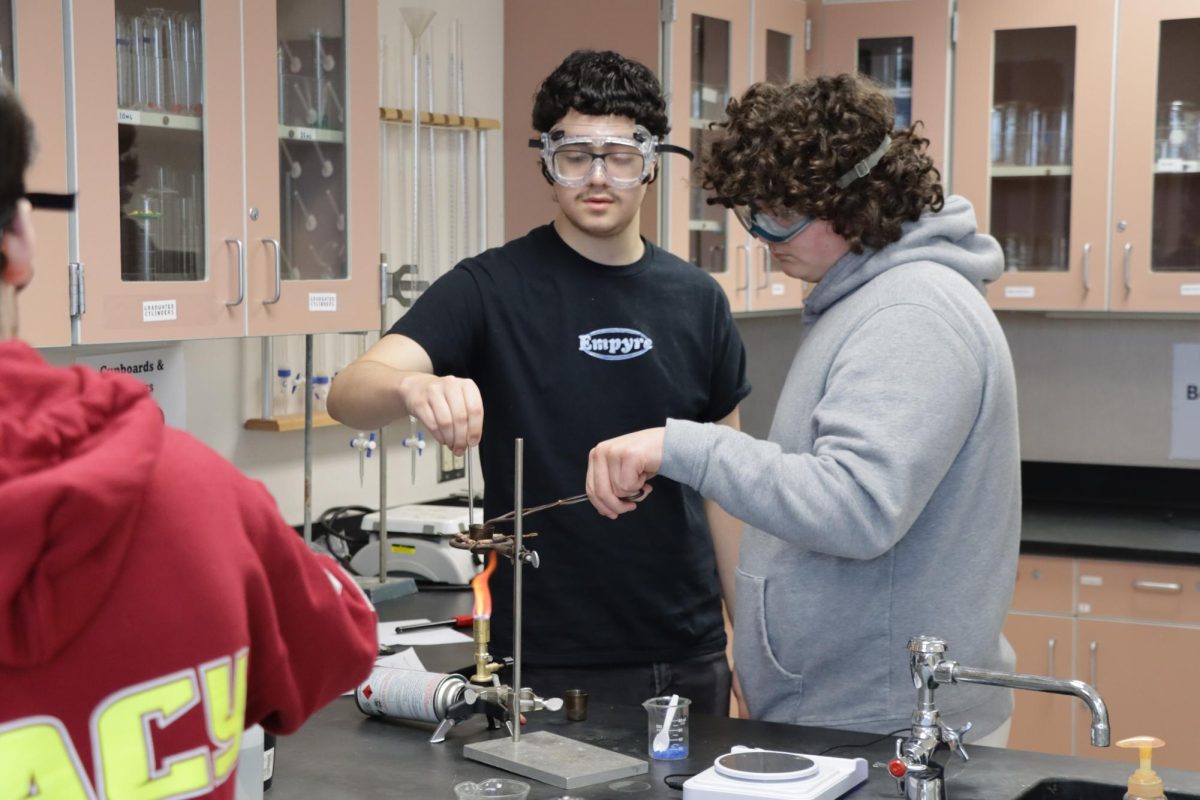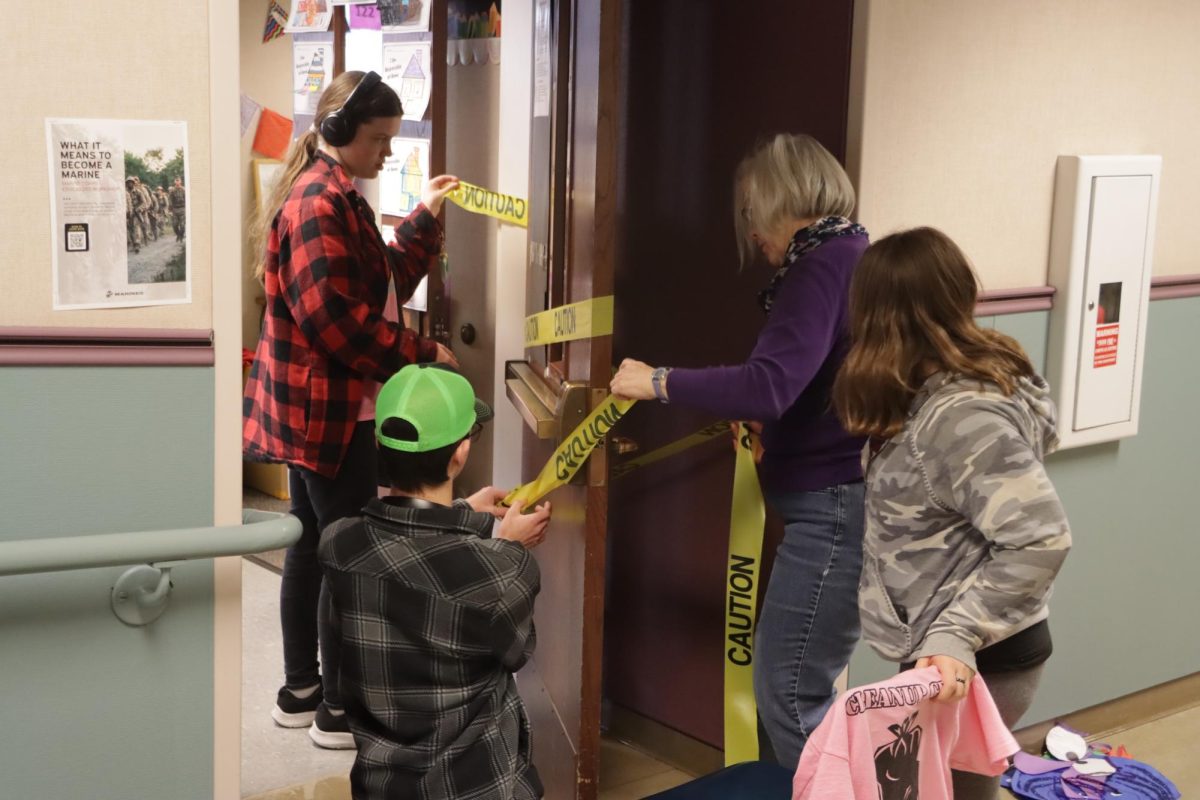According to a recent poll through the YMCA on teen communication, teens are twice as likely to say they prefer spending time with their friends over time with their parents.
Teens throughout this poll agree that talking to parents can often be an awkward and uncomfortable situation.
As teens grown up in an era of blooming technology, face-to-face conversations don’t happen as frequently as they used to. Teens seem to be more accustomed to a subtle buzz in their pocket, than a tap on their shoulder from a friend trying to get their attention.
Michelle Maxwell, parent of a senior at Rogers High School, knows the many differences between communication today and back when she was in high school, especially when it comes to technology.
“We text a lot and sometimes it’s easier to convey our messages through texts, except when she would be at football games. I would try and ask, ‘what’s the score?’ Sometimes she would get annoyed but otherwise texting is a great way to get the point across,” Maxwell said.
Texting is always good for a quick yes or no answer but sophomores Alyssa Babcock and Mariah Clark beg to differ.
“When I try to text my parents I feel like I can’t understand their tone of voice or the concept that their talking about,” Babcock said.
Furthermore, texting can lead to many misunderstandings.
“When I text my parents they always think I’m either mad or annoyed but in reality I’m just talking. You can’t put emotion into a text message, unless you use those cool emoji icons,” Clark said.
Senior Kinzi Cox provides valuable input regarding conversations with her parents,
“In my case, my parents don’t text, so I usually rely on them calling me when I need to know something. When she calls I always try and be respectful, regardless of whom I’m with. In the end, it’s better to gain respect with your parents rather than with your friends,” Cox said.
Cox comments that when teens are with their friends, the pressure of pleasing people comes in. Teens can choose to either relate to their friends or be respectful of their parent.
“You always want to please your parent. Sure, kids can make fun of you while talking to your mom but in the end always show respect to your parents, regardless of what your friends will do,” Cox said.
The initial greeting that sparks further conversation between parents and their kids is, “how was your day at school?”
“If something was going on that day, I would ask her about that to see how she’s doing and if anything’s bothering her,” Maxwell said.
Yet small talk and general questions are what a lot of teens can relate to.
“We usually have small talk, and then I try and get away from them as soon as possible,” Clark said.
Teens often show truthfully that they are not comfortable talking to their parents openly, Clark mentioned, it depends on whether the topic is schoolwork or something more personal.
“I can’t talk to my parents openly, I feel like they want their kids to be prestigious little angels and obviously we’re not,” Clark said.
Sometimes teens turn to friends when they need security or someone to talk to.
“I really don’t feel like I can talk to my parents openly, because it’s uncomfortable talking to people about my problems in general. Yet if I had to choose, friends are defiantly easier to talk to. I feel like they can relate easier to what I’m talking about,” Cox said.
So, why don’t parents understand?
“Parents have a hard time understanding because of drama at school. A lot of times they aren’t sure what’s happening or how teens feel about it,” Babcock said.
Teens are not the only ones struggling with communication.
“Of course I enjoy talking to my daughter but with any mother-daughter relationship it can be very difficult, especially when we aren’t on the same page. But that’s fine, because she knows I’m here and I know she’s ok,” Maxwell said.
All relationships are different and some can be better than others, especially when it relates to teens and parents.
“Some teens are more able to communicate with their parents; there are multiple sides to the picture, when it comes to sharing your opinions with people, it just depends on your relationship with that person,” Cox said.
Parents have the common thought of wanting their kids to succeed.
“Of course we want our kids to be the best they can be but once they start growing up both the parents and kids start to hold a set of new worries, so adults usually talk to their kids along the line of what we have to worry about at this moment,” Maxwell said.
Conversations between parents and teens usually come up when there are worries or complications to deal with.
“For me, it is more like how are you going to deal with feeding yourself and managing your own money,” Maxwell said.
Teens usually have the issue of their parents treating them like a child, even though they are a teenager.
“Now that she’s 18, I talk to her more as an equal, because our relationship is changing since she’s now a responsible adult,” Maxwell said. “Of course I talk to her differently now, than I did when she was 16. I think she is starting to understand where I was coming from in past years.”
Parents mainly want the opportunity to talk to their children openly, so they can get a further understanding of what they’re thinking or feeling.
“We’re coming to the point where, we have new challenges that we have to talk about and then there are things that I want to say, such as, ‘your curfew is 10’. But I want her to make good choices for herself when she gets into these situations,” Maxwell said.
The society has changed a substantial amount. New technology has developed making high school a different place now then it was when parents attended.
“Schooling has changed since they were kids. They always talk about what they had to worry about when they were in high school but they don’t necessarily know all of the pressures that we have, growing up in a world of technology and peer pressure,” Cox said.
Even though teens have to face the everyday conversation of, “how was school?” parents are ultimately there to help them find their way in the world. These daily conversations not only give them security but they help them through some awkward moments in their life.






